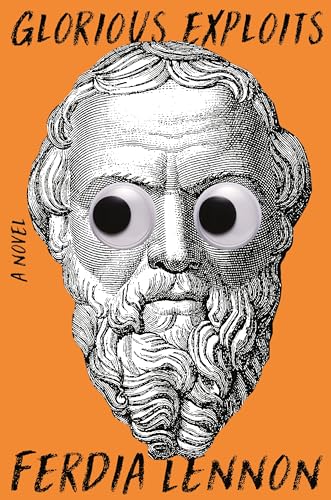Glorious Exploits
It is 412 BCE, and Athens is losing the Peloponnesian War, while in Sicily the city of Syracuse is rising. Gelon and Lampo, two out-of-work Syracusan potters, bring meager rations to a quarry where hundreds of Athenian prisoners waste away in shackles. But where Gelon’s compatriots see captive enemy soldiers, he recognizes a precious source of knowledge. He loves Euripides, and he proposes to mount a production of Medea, a play he assumes at least some of the prisoners must know by heart. Wouldn’t any cultured Athenian? Lampo thinks his friend is cracked but goes along.
From this unusual premise springs a poignant, madcap, powerful, often hilarious, unpredictable story told in vigorous and profane modern Irish slang. When doomed men perform a tragedy about pride and betrayal, greed and downfall, nobody can look on unmoved. The production changes everyone who encounters it.
Lennon expands on themes in Medea, notably its nascent feminism and portrayal of children as pawns. For instance, Lampo sets out to woo a beautiful slave, hoping to buy her freedom and marry her, rather than use her whenever he has the money. Gelon, whose only child died young, befriends a group of kids and treats them as full-fledged people, folding them into the production crew.
The novel is a love letter to make-believe and the power of storytelling. The satire on oversized stage personalities—a role Lampo grows into with comic gusto—is delicious, but there is serious matter, too. The money he flashes (courtesy of a generous producer), earns him respect and deference for the first time in his life. Such commentary about social class runs throughout the narrative.
I heartily recommend Glorious Exploits, an imaginative, original novel that has much to say about our modern times, even from 2,500 years ago.










